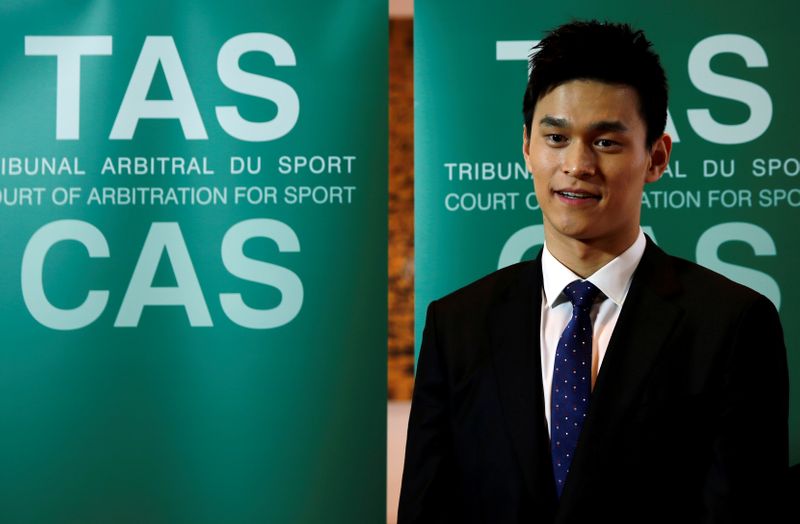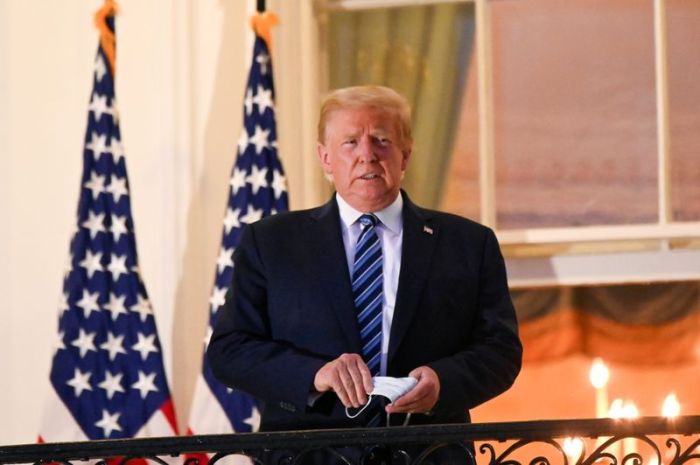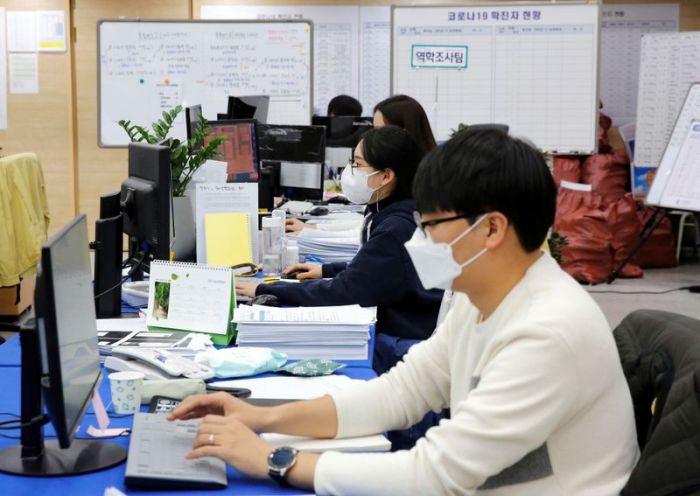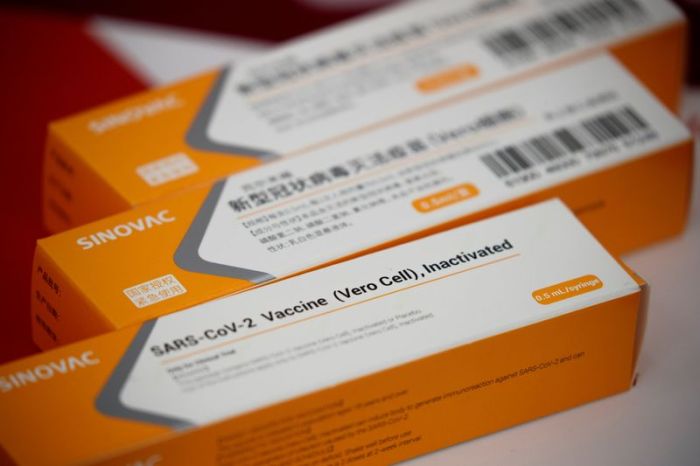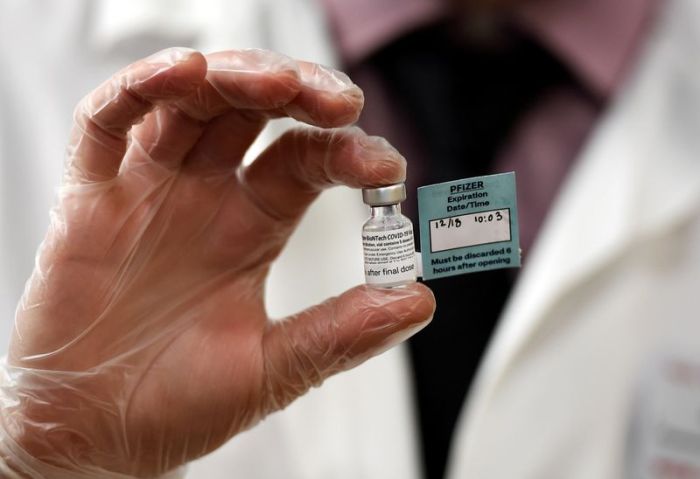(Reuters) -Chinese swimmer Sun Yang has had his eight-year ban for doping violations referred back to the Court of Arbitration for Sport (CAS) after the Swiss Federal Supreme Court upheld his appeal against the ban on the grounds of bias by one of the CAS panel.
The decision could potentially clear the way for Sun to compete at next year’s delayed Tokyo Olympics, depending on when the case is heard.
Sun was banned for eight years by CAS in February after it accepted an appeal from the World Anti-Doping Agency (WADA) against a decision by swimming governing body FINA to clear him of wrongdoing for his conduct during a 2018 test.
Sun appealed that decision and the Swiss court confirmed on Thursday that it had upheld a challenge against the CAS Panel “on the grounds of bias of one of the arbitrators of the CAS”.
“The award of the CAS is set aside. The CAS will have to render a new award in the case of Sun Yang in a different composition of the panel,” it said.
WADA said it would “present its case robustly again when the matter returns to the CAS Panel, which will be chaired by a different president.”
The New York Times reported Sun’s lawyers had successfully argued to the Tribunal that the head of the CAS Panel had made public comments that expressed anti-Chinese sentiments.
CAS, based in Switzerland, confirmed in a statement to Reuters that Sun’s objections were raised against the head of the panel and remarks he made on social media.
“The CAS very much regrets that the objections against the President of the Panel have not been raised earlier and that they could not be examined during the CAS proceedings,” it said.
“Obviously, the personal statements published by the President of the Panel on his personal Twitter account in 2018 do not represent the view of CAS.”
It said the case would resume “immediately.”
CAS is sport’s highest tribunal but its decisions can be appealed to the Swiss Federal Supreme Court, which can rule on procedural issues but not the substance of the case.
BLOOD SAMPLES
Sun, the reigning world and Olympic champion in 200 metres freestyle, was banned after he and members of his entourage were found to have smashed vials containing blood samples taken at an out-of-competition test in September 2018.
Sun has questioned the credentials and identity of the testers and has constantly proclaimed his innocence.
The 29-year-old, who won two gold medals at the 2012 London Games and another at Rio de Janeiro in 2016, is a controversial figure in the sport.
He served a three-month doping suspension in 2014 for taking the stimulant trimetazidine, which he said he took to treat a heart condition, while Australian swimmer Mack Horton openly called him a drug cheat at the 2016 Rio Olympics.
Horton refused to share the podium with Sun at the 2019 world championships in South Korea, a move that was applauded by other swimmers but condemned by FINA.
Swimming Australia said they and Horton had no comment on the decision.
Official reaction in China was muted early on Thursday, although the news managed to get into the top-20 trending topics on China’s Weibo, a Twitter-like social media platform.
Most users supported the Swiss court’s decision to refer his case back to CAS, although many held out little hope of a reversal of the original result.
“The overturn of the case is due to procedural violations, not because of factual flaws,” one user wrote.
“The case will be heard by the CAS once more, it is unlikely to reverse the result.”
(Reporting by Greg Stutchbury in Wellington, Lusha Zhang in Beijing and Brian Homewood in Lisbon; Editing by Grant McCool, Stephen Coates, Richard Pullin, Alexandra Hudson and Ken Ferris)

